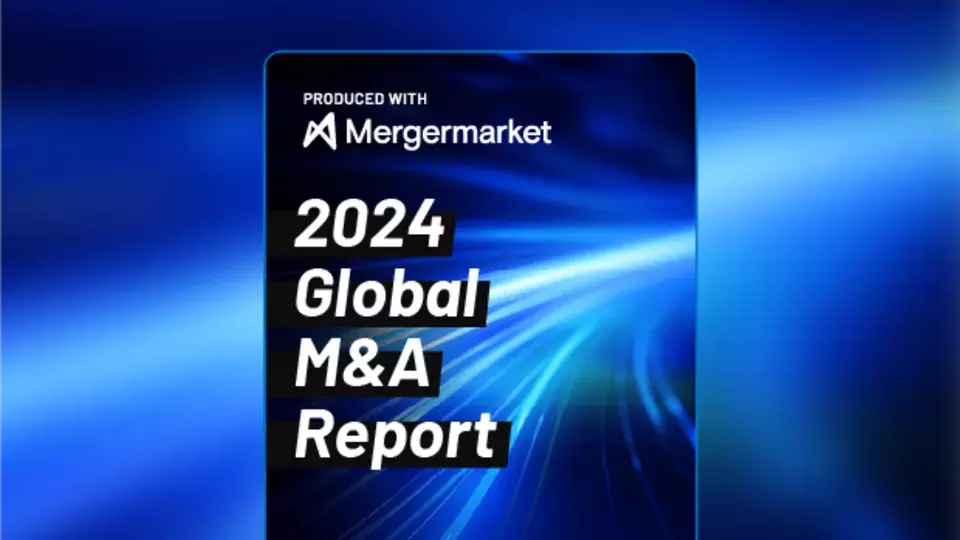In a Tough Exit Market, Creativity Is the Name of the Game
Private equity players have been waiting patiently for exit conditions to improve while corporates continue their portfolio upkeep. Panelists from our recent webinar agree that together, they can execute deals that would otherwise be difficult in the current economic and regulatory environment.
As we prepare to embark on 2024, global dealmaking remains subdued amid an uncertain economic outlook. Dealmakers continue to navigate a challenging financing environment, lengthy and complex diligence processes, and heightened regulatory scrutiny. Still, early-stage deal activity remains robust, indicating a willingness to transact.
How are corporate and private equity (PE) firms responding to these challenges? To find out, SS&C Intralinks, in partnership with the Financial Times, brought together a panel of corporate and PE leaders for a webinar entitled “Corporates Vs. Private Equity: Who Has the Dealmaking Advantage?” Ivan Levingston, European deals reporter at the Financial Times, led the discussion. He was joined by Jannan Crozier, global chair of M&A at Baker McKenzie; Imogen Richards, partner and head of primaries at Pantheon; Nicolas Moiseeff, VP of business development at Bunge; and Ken Bisconti, SVP and co-head of SS&C Intralinks.
Here are some of the key takeaways from the informative discussion.
Corporates continue to reshape their portfolios
Despite financing challenges and softening valuations, buyers still want to get deals done, and corporates are keeping their eye on portfolio hygiene. “The world is moving very quickly from a technology, human capital and geopolitics perspective,” said Baker McKenzie’s Crozier. “I think we will see an acceleration of corporates reviewing their portfolios and selling assets that are no longer core.”
In addition, companies will have to make deals to honor their sustainability commitments, divesting from so-called “dirty assets” and reinvesting in new technologies. “Private equity can then take advantage of some of those newly created opportunities, create bolt-ons and look to IPO when the markets stabilize,” she added.
PE activity remains subdued
The impact of tight financing conditions on PE activity has been particularly pronounced. “When we look through the 10,000 or so funds we invest through, we’ve seen a 20 percent reduction in new deal flow this year, and distributions have dropped to about half the levels we’ve seen in the longer term average,” said Pantheon’s Richards. “That’s jamming up the system, and that lack of distributions means there’s less capital to reinvest.”
As a result, allocators are looking to the secondaries market to free up distributions that aren’t available through other exit routes. Intralinks’ Bisconti added that the recently published SS&C Intralinks 2024 LP Survey found “68 percent of LPs were offered opportunities to invest in general partner (GP)-led continuations funds,” a growing trend as GPs try to unlock faster liquidity options.
Who has the advantage — corporate or PE dealmakers?
While PE dealmakers have access to large amounts of capital and can often be more flexible with financing terms than their corporate counterparts, Bunge’s Moiseeff feels corporates currently have the overall dealmaking advantage. “Valuations are still high, and that’s making it difficult for PE to compete,” he said. “We’re seeing auctions where PE isn’t even being considered initially.”
Working together to create value
Moiseeff and the panelists agreed that PE firms and corporates can work together to navigate regulatory and financing challenges. Through such partnerships, PE fund managers can transact with less debt or equity, and corporates can offload assets that pose the most significant regulatory risk. “We don’t necessarily see PE as a competitor,” said Moiseeff. “We think they can add value through risk-sharing, capital allocation and other compliments to corporate skillsets.”
Building on the theme of value creation through partnership, the panel went on to discuss in-depth some of the other creative strategies dealmakers are implementing to gain deal certainty and ensure clean exits. To learn more, watch the full webinar on-demand.





